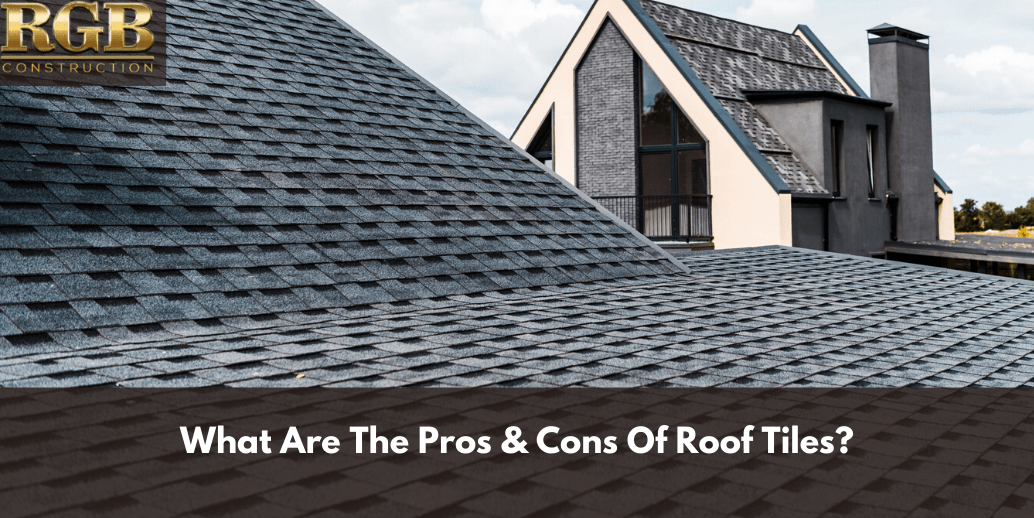Tiled roofs are not only lovely to look at, but they are also durable, lasting, heavy in weight, and costly. One can say that the best part of their value is 100 years worth or more vested in longevity and durability. They are an excellent roofing choice for certain parts of the country, such as almost anywhere in the Southwest, the coast of Florida and California, where tile roofs are prevalent.
Adaptation
Roof tiles are fabricated to adapt to extremely warm as well as moist weather where rain can suddenly come out of nowhere and bring a downpour over a tile roof. That’s one advantage of tile roofing. It can easily and quickly shed large amounts of water without damage.
Advantages Roof Tiles
With tile roofs being prevalent in some areas of America and the world, there are pros and cons for their use. Just what are the advantages and disadvantages of roof tiles? Here are a few of both the good and the not so good, when it comes to roof tiles.
Pros of Roof Tiles
Eco and environmentally friendly – Since tile roofs come from minerals in the earth, they are free of any compromising chemicals or other resources that are dangerous to the environment. Once broken or no longer usable, roof tiles can be crushed and recycled.
Energy Saving – A high-density material like tile can absorb and retain heat energy(high thermal mass). Indoor temperatures can be better regulated as the tiles provide a balance against fluctuating temperatures.
Impenetrable – Tile roofs are immune to decay, rot, and insect damage.
Enduring – If applied in the right region and climate, tile that is made from clay or concrete can combat fire, hail, strong winds, and heavy rain. Tile is an impervious material that will not require replacement by another type of roofing. Many tile manufacturers will provide 50-year warranties to back their claims.
Limited Maintenance – A tile roof requires limited maintenance as leaks are unlikely, as are major repairs. Breakage from a heavy hit or impact would be a concern. Any ongoing maintenance with a tile roof should include inspections, cleaning tiles of dirt and debris, sealing the tiles, refraining from walking on tiles, repairing and replacing tiles as needed, and abstaining from washing any streaking.
Large Selection – Choices are plentiful when it comes to clay, slate, or concrete tiles as they are available in any number of colors and styles. They coordinate with most any type of home design. Today, a homeowner can even find tiles that are similar in appearance to shakes or wood shingles.
Cons of Roof Tiles
Heavy – Roof tile is extremely heavy. The weight of it can run as much as 800 plus pounds for clay tile per square, and over 900 pounds for concrete tile per square. When comparing roof tiles to asphalt roofing, asphalt only weighs in the two to three hundred pound range per square. A roof’s structure must be able to withstand the heaviness or weight of roof tile. If tile is going to be installed on a roof, an engineer should be called in to decide whether any structural changes and reinforcement need to be made before installation.
Brittleness – Though tiles, whether concrete, slate, or clay, are sturdy, they can suffer breakage if any major force comes against them. Tree branches, heavy debris, or the pressure of unfortunate footsteps can cause damage. Repairs or tile replacements can be costly.
Installation Challenges – A tile roof installation can present challenges. A professional and experienced roofing expert should complete any tile installation. Do-it-yourself projects need to be put aside. The tiles require specific layouts, exact measurements, and checks for moisture accumulation.
Limited Roof Slope – Roof tiles are not fitting for all types of roof slopes. They are most suitable for roofs with somewhat sharp slopes. Roofs with lesser pitches should be checked before utilizing tile.
Costly – There is no doubt that the cost of a tile roof is going to be considerably greater than that of an asphalt roof. Concrete is less expensive, while slate can be quite a bit more. Whatever the cost, it is offset by the longevity and low maintenance of tile.
If you are contemplating tile roofing for your home, you may want to take into consideration the advantages and disadvantages of such a roofing system, and any structural changes that may be necessary to accommodate it. If you have any further concerns or questions about tile roofing, complete the online contact form, and a roofing expert will get back to you with the answers you need to make an informed decision.







